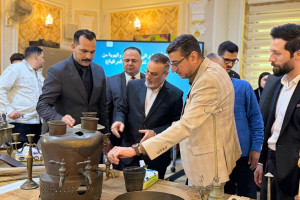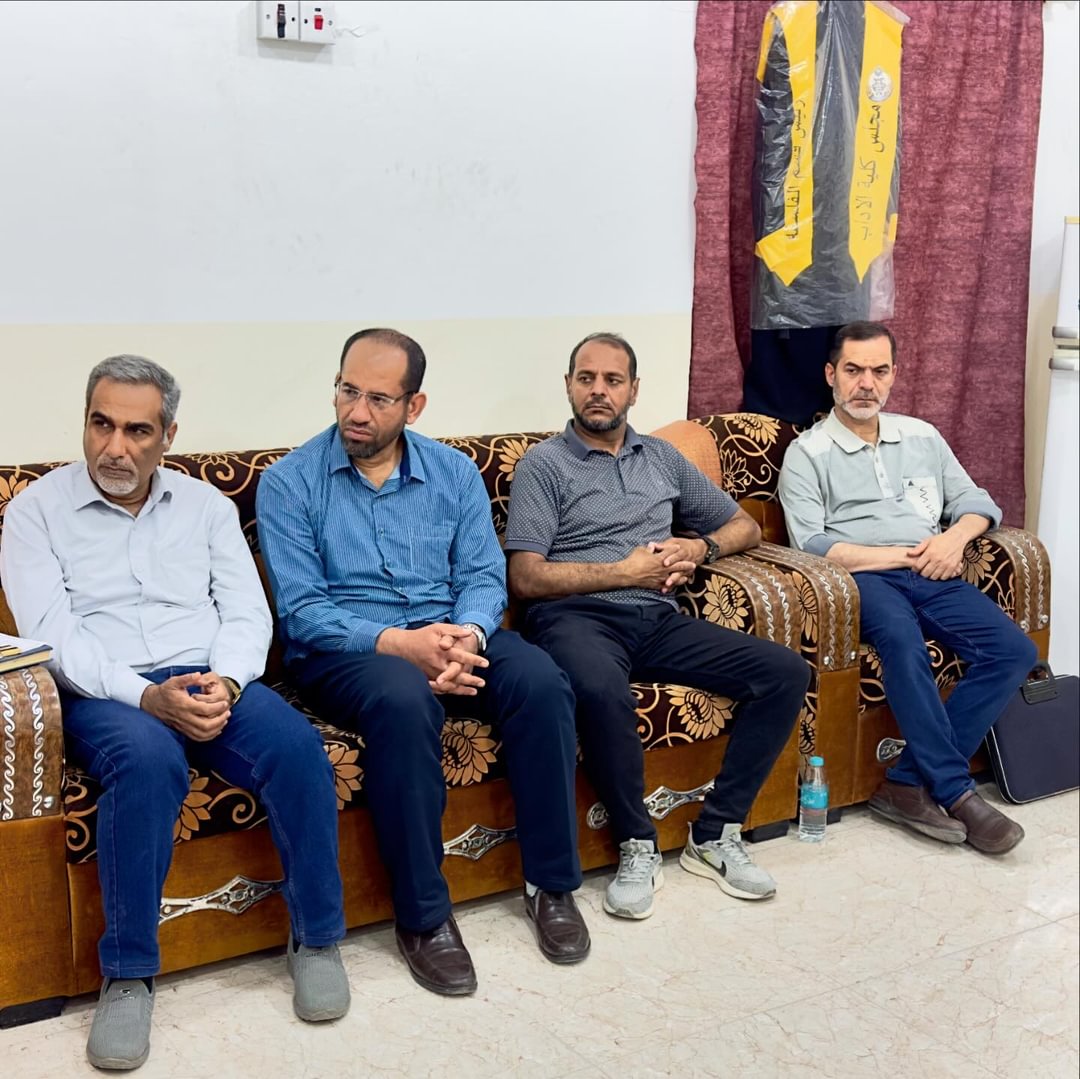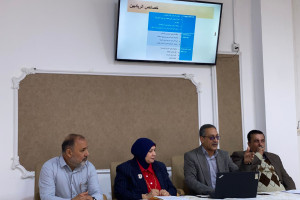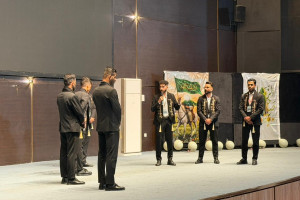


The Department of Philosophy at the College of Arts at the University of Basrah organized a panel discussion entitled (Towards a Philosophical Viewpoint on Translation) by Professor Dr. Nawal Taha Yassin.
The panel discussion in which Professor Dr. Nawal Taha Yassin lecture aims to clarify the relationship between philosophy and translation, on the basis that thinking about the translation process philosophically or practicing philosophical translation is in itself a form of philosophizing.
The panel discussion dealt with various topics, including focusing on the origin of the concept of translation, and the multiple meanings of this concept, such as (transmission, crossing, interpretation, definition, and reading). This means that translation has several tasks, one of which is related to its ultimate goal, as a way of forming a vision of the world, which is a cognitive and moral goal at the same time. This is a sign that translation can contribute to producing good, provided that it works to bring together people from different countries, cultures, and beliefs, and contributes truly to enhancing global understanding, on the one hand.
On the other hand, the intervention stressed that translation is not directed only to communication, but that transferring the text to another language means resurrecting it again, as Walter Benjamin put it, and keeping it alive (thought), in translating what is not translated, meaning that we do not stop translating it due to the symptoms of differences between languages, and this is what translation must feel, and no language can do this task except the living language, or more precisely the original language, whose rhetorical and lexical means the translator can employ to find a sound translation language. Otherwise, the translation becomes dead messages, and authentic language is the language that can represent the culture of the other as if the recipient were in its presence, to be in its hospitality, as the self, which is what Ricoeur embodies with the concept of linguistic hospitality.







